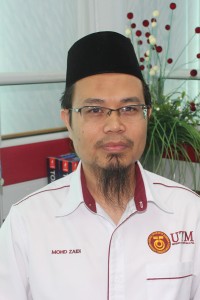WELCOMING STATEMENT FROM HEAD OF PETROLEUM ENGINEERING DEPARTMENT
Over the last few decades, our graduates have been serving the society in key positions and have made tremendous impact to the development of Malaysia.Our goal for undergraduate students is to give them a high quality petroleum engineering education that includes hands-on experience. Our program is fully accredited by the Engineering Accreditation Council (EAC), which means that it meets or exceeds the quality standards set by the EAC.We also have a strong graduate program in Petroleum Engineering. Our Master and Ph.D. students give numerous technical presentations in courses and on their research. All graduate students are also expected to publish their research works in relevant peer reviewed journals. Each of our faculty members is ready and willing to work in their research specialty with capable students on individual projects. Our faculty have two major areas of research, namely reservoir management and drilling and petroleum production engineering.
Over the years, we have been assisted by experienced advisory panels from oil and gas industry and renowned universities in improving our academic curriculum so that it is of high quality and relevant to the needs of oil and gas industry. Industry practitioners are invited every semester to give professional talks to all petroleum students on contemporary issues.
There are numerous opportunities for our students to participate in student organizations. The Society of Petroleum Engineers’ Student Chapter (SPE-UTM) has been among the most active in the Asia-Pacific region over the past few years. The presence of international students from Kazakhstan, Yemen, Somalia, China, Sudan, Indonesia, Iran, Uganda, Indonesia, etc. at the Department of Petroleum Engineering will further complementing our effort in producing well-rounded petroleum graduates who are ready to face the challenges in global oil and gas industry.

Ir. Dr. Mohd. Zaidi bin Jaafar
Head,
Department of Petroleum Engineering
Why Study Petroleum Engineering
The curriculum has been designed to introduce students to the petroleum industry early in the first year, but also includes studies in mathematics, engineering and sciences, especially geology and geophysics, in order to enhance students’ broad understanding of the different aspects of science and engineering which make up the petroleum exploration and production industry. In the second and third year these areas of study are developed, and in addition, aspects of managing petroleum assets are introduced. These are a particular focus of the School and make its teaching curricula unique providing our graduates with a clear advantage in todays highly competitive, uncertain and dynamic world. In the fourth year, students have an opportunity to specialize in one aspect of petroleum engineering, while expanding their technical and management skills further.
